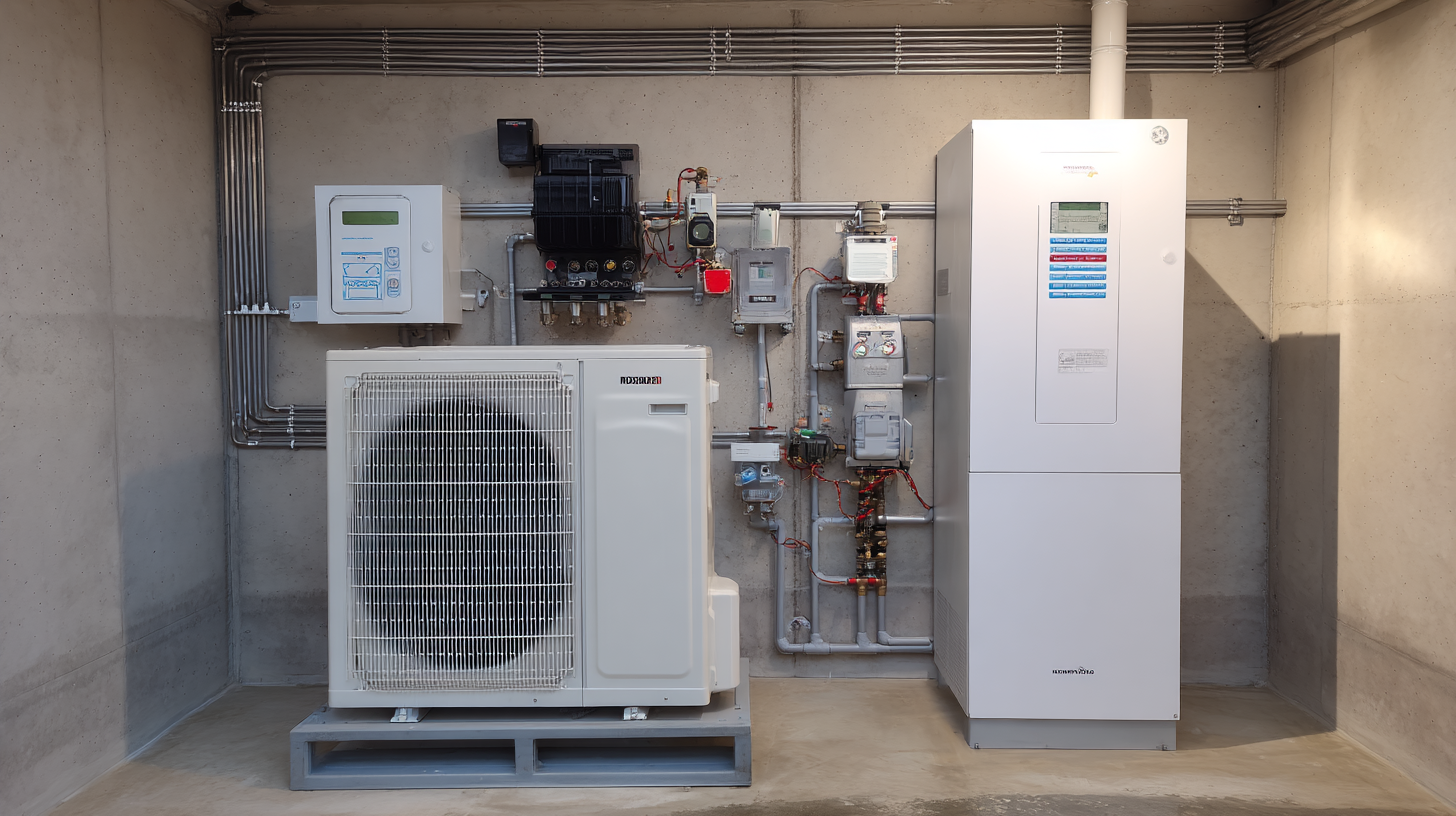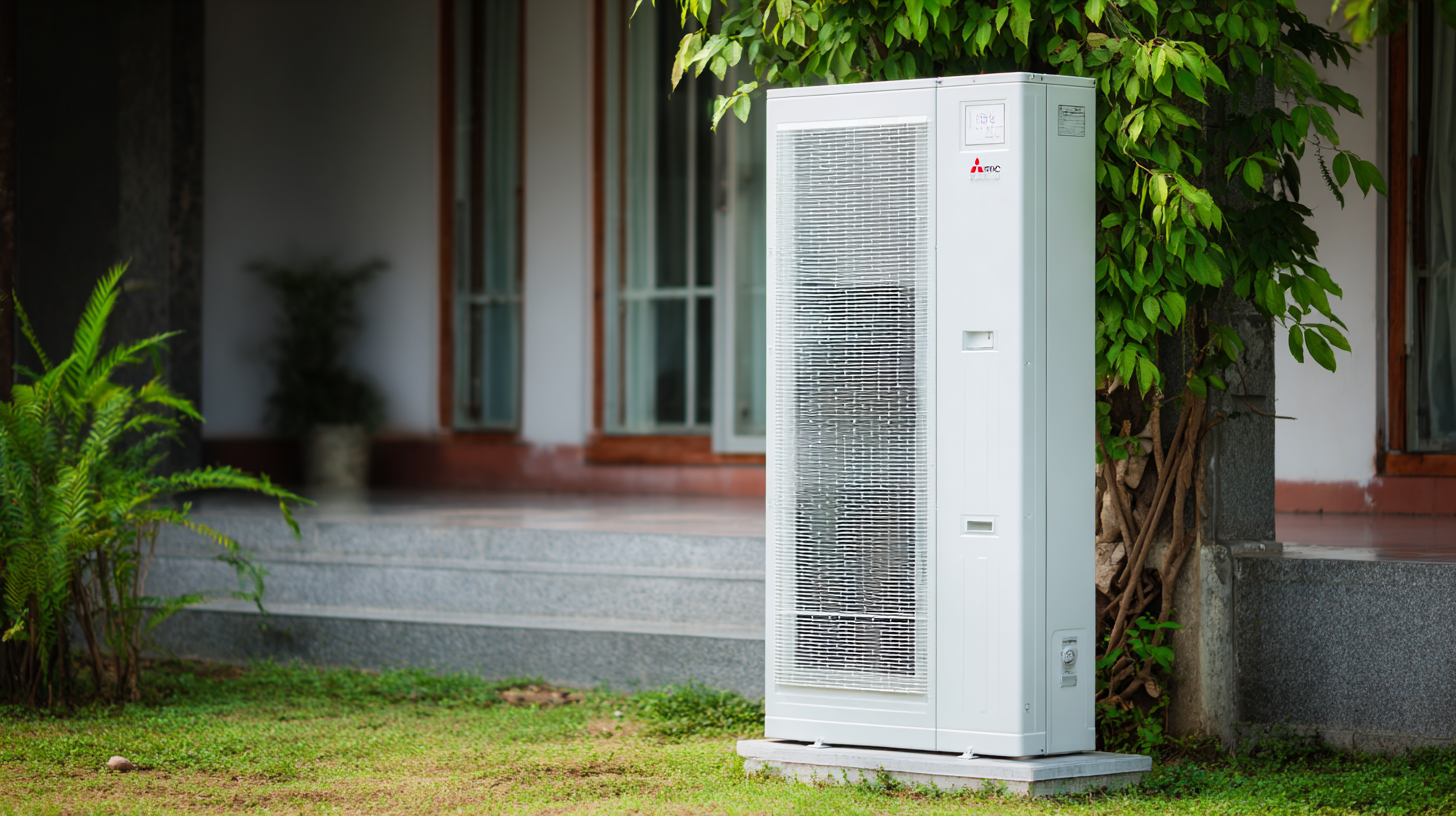Leave Your Message
In today's world, energy efficiency has become a paramount concern for homeowners and businesses alike, as they strive to reduce their carbon footprint and save on utility bills. One innovative solution gaining traction is the Monoblock Heat Pump, a compact and efficient system that both heats and cools spaces effectively. This blog will guide you through the essential steps to maximize energy efficiency using a Monoblock Heat Pump. From understanding its operation to proper installation techniques and maintenance tips, we will explore the practical ways in which this technology can not only improve comfort but also significantly lower energy costs. By leveraging the benefits of a Monoblock Heat Pump, you can make a sustainable choice that benefits both your wallet and the environment.

Monoblock heat pumps have emerged as a leading technology for enhancing energy efficiency in residential and commercial settings. Key features that drive their effectiveness include advanced thermal insulation, variable speed compressors, and integration with renewable energy sources, such as solar and lake water systems. For instance, recent assessments show that monoblock heat pumps can achieve seasonal energy efficiency ratings exceeding 4.0, substantially reducing reliance on traditional heating methods and lowering energy bills.
The growing interest in eco-friendly solutions has led to the adoption of heat pumps in energy-efficient building projects. With an increasing number of renovations incorporating these systems, such as retrofitting natural gas heating with heat pump water heaters, studies indicate a potential reduction in carbon emissions by up to 50% over conventional systems. Furthermore, the demand for such innovative solutions is being driven by consumer awareness and regulatory incentives that encourage the integration of green technologies into home design. Ultimately, the attributes of monoblock heat pumps signify a pivotal shift towards more sustainable energy practices, reinforcing their critical role in the future of energy-efficient infrastructure.
Monoblock heat pumps are an excellent choice for enhancing energy efficiency in your home. One of the primary benefits is their ease of installation, as these all-in-one units do not require extensive ductwork. This not only reduces installation costs but also minimizes potential heat loss. Homeowners can quickly enjoy the benefits of a comfortable environment with lower energy consumption.
To maximize the efficiency of your monoblock heat pump, consider regular maintenance. Make it a habit to clean or replace filters as needed, ensuring that airflow remains unobstructed. Additionally, keeping the outdoor unit clear of debris allows for optimal heat exchange, enhancing overall performance.
Another significant advantage of monoblock heat pumps is their ability to provide both heating and cooling, making them an excellent all-season solution. By relying on one system year-round, homeowners can streamline energy usage. To further improve efficiency, using a programmable thermostat can help regulate indoor temperatures based on your schedule, providing comfort while reducing energy costs.
To enhance the performance of your monoblock heat pump and effectively reduce energy costs, consider implementing the following practical tips. First, regular maintenance is crucial. Schedule seasonal check-ups to clean filters and inspect for any leaks or wear. This ensures your system operates efficiently, preventing energy waste.

Monoblock heat pumps are increasingly recognized for their energy efficiency and environmental benefits, making them an appealing choice for homeowners and businesses alike. One of the primary advantages of these systems is their lower carbon footprint. According to the International Energy Agency, heat pumps can reduce greenhouse gas emissions by up to 50% compared to conventional heating systems. This significant reduction is attributed to their ability to transfer heat rather than generate it, making them a more sustainable option for maintaining comfortable indoor temperatures.
Additionally, monoblock heat pumps contribute to energy conservation by utilizing renewable energy sources like ambient air. Reports from the American Society of Heating, Refrigerating and Air-Conditioning Engineers indicate that using air-source heat pumps can lower energy consumption by approximately 30-40% compared to traditional fossil fuel heating methods. This not only lowers utility bills for consumers but also reduces the overall demand for fossil fuels, promoting a greener energy landscape. By investing in monoblock heat pumps, we can move towards a more sustainable future while enjoying continued comfort and efficiency in our living and working spaces.
| Reason | Benefits | Environmental Impact |
|---|---|---|
| 1. Higher Efficiency Ratings | Lower energy consumption leading to reduced utility bills. | Decreases overall carbon footprint. |
| 2. Reduced Refrigerant Loss | Minimizes environmental hazards by lowering refrigerant leaks. | Helps in protecting the ozone layer and reduced global warming potential. |
| 3. Easy Installation and Maintenance | Lower installation costs and easier upkeep improve long-term viability. | Encourages more users to adopt heat pump systems, leading to a greener environment. |
When considering monoblock heat pumps, it's crucial to clear up some common misconceptions that can hinder their adoption. One major myth is that these systems are inefficient in colder climates. In reality, modern monoblock heat pumps are designed to operate effectively in temperatures as low as -15°C, maximizing energy efficiency and providing a viable alternative to traditional heating systems. According to recent studies, households using air source heat pumps can save around 50% on heating costs compared to gas boilers, making them a smart investment for the environmentally conscious homeowner.
Another misunderstanding is the noise level of heat pumps. Many potential users believe these systems are disruptive and loud. However, advancements in technology have led to significant improvements in noise reduction, with some models operating as quietly as a normal conversation. This makes them suitable for residential areas without disturbing peace, further enhancing their appeal.
Tips: When considering a monoblock heat pump, look for models with a low decibel rating to ensure a quieter operation. Furthermore, take advantage of efficiency calculators available online to project your potential savings based on your specific heating needs.

